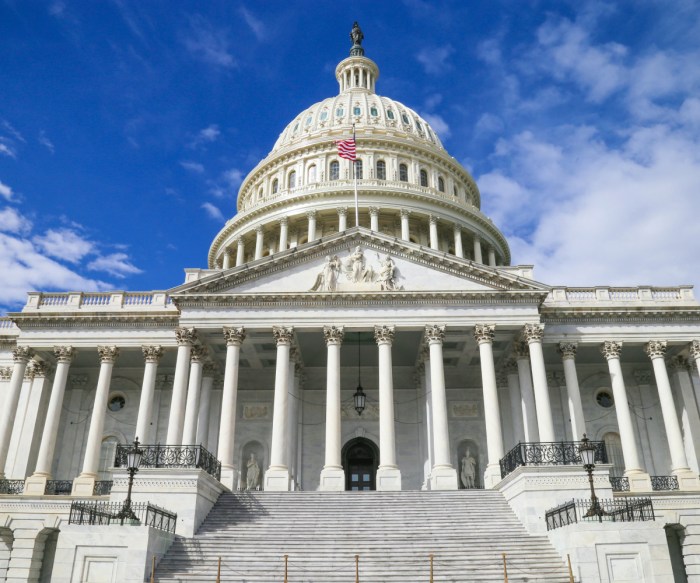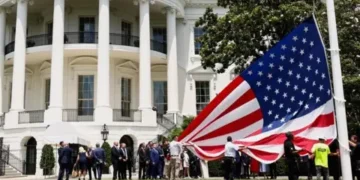White House Press Secretary Karoline Leavitt affirms U.S. openness to diplomacy with Iran, while encouraging citizens to oppose the regime if peace is rejected. She defends recent airstrikes, stating they targeted enriched uranium and weakened Iran’s nuclear program.

The White House on Monday (June 23) defended the U.S. airstrikes on Iranian nuclear facilities carried out over the weekend, and hinted that the responsibility for political change in Iran may now lie with its citizens if Tehran refuses to reengage in diplomatic negotiations.
Although top officials maintain that regime change is not the official U.S. policy, President Donald Trump’s recent statements suggest a different stance.
White House Press Secretary Karoline Leavitt emphasized in an interview with ABC News that the U.S. military posture remains unchanged following the recent strikes. She reiterated that the United States continues to pursue diplomatic solutions but placed the onus on the Iranian people if diplomacy fails. Leavitt suggested that it would be up to the Iranian population to “rise up against this brutal terrorist regime” should their leaders refuse to engage in diplomatic efforts.
“If the Iranian regime continues to reject peaceful diplomatic solutions — which the President remains committed to pursuing — then why shouldn’t the Iranian people reclaim their power from a regime that has violently oppressed them for decades?” she said during an appearance on Fox News.
She added that the United States “believes the Iranian people have the right and ability to shape their own future.”
Trump Suggests Possibility of Regime Change in Iran
Former President Donald Trump stirred controversy Sunday night with a post on his Truth Social platform, where he appeared to suggest support for regime change in Iran.
“It’s not politically correct to use the term ‘Regime Change,’” he wrote, “but if the current Iranian regime is unable to MAKE IRAN GREAT AGAIN, why wouldn’t there be a regime change???”

The comment represents a notable departure from the long-standing U.S. policy, which has officially rejected the idea that military actions are intended to overthrow the Iranian government.
Severe Damage Reported After US-Israeli Airstrikes on Iranian Nuclear Sites
Over the weekend, the United States joined Israel in a major military operation targeting Iran’s nuclear infrastructure. The coordinated airstrikes hit three key nuclear enrichment sites, including the heavily fortified Fordo facility, located deep within a mountain south of Tehran.
According to the White House, the mission was deemed a “complete success.” Former President Donald Trump also weighed in, stating that the strikes inflicted “monumental damage” on Iran’s nuclear program.
However, there has been no independent confirmation of the damage, and it remains unclear whether any enriched uranium — which could be used in a nuclear weapon — was relocated prior to the strikes.
Table of Contents
Leavitt affirmed the accuracy of the strikes during an interview with Good Morning America, stating, ‘We are highly confident that the locations targeted were precisely where Iran’s enriched uranium was being stored.
She added, “The president would not have authorized the strikes unless we were confident in their effectiveness.”
According to Leavitt, the administration believes the airstrikes have successfully disabled Iran’s nuclear weapons program: “They no longer possess the capability to develop a nuclear weapon or pose a threat to the world,” she stated.
The United States and Israel allege that Iran is secretly developing nuclear weapons while claiming its program is for civilian energy purposes — an accusation Iran strongly denies. The U.S. airstrikes on Saturday represent a significant escalation in attempts to stop Iran’s nuclear ambitions.
READ ALSO……..U.S. Warns: Iran Missing 400kg of Uranium, Enough for 10 Nuclear Bombs















 Categories
Categories









